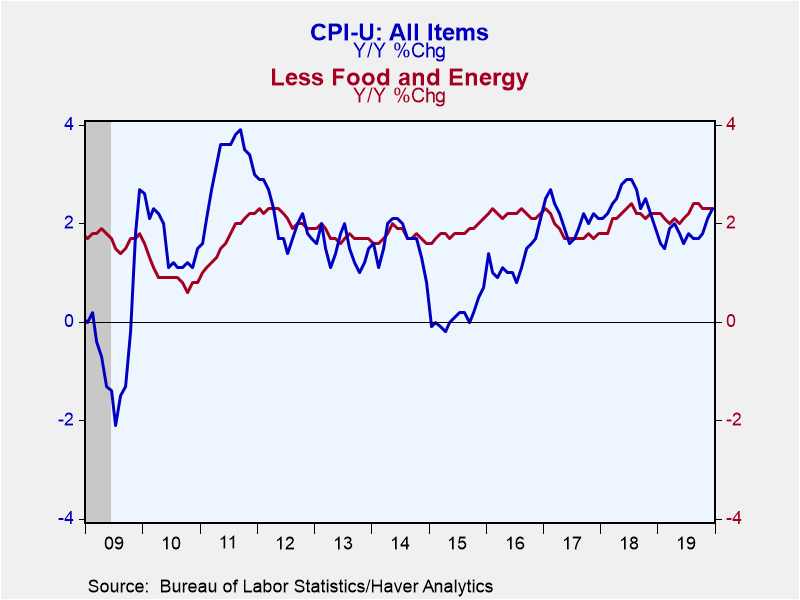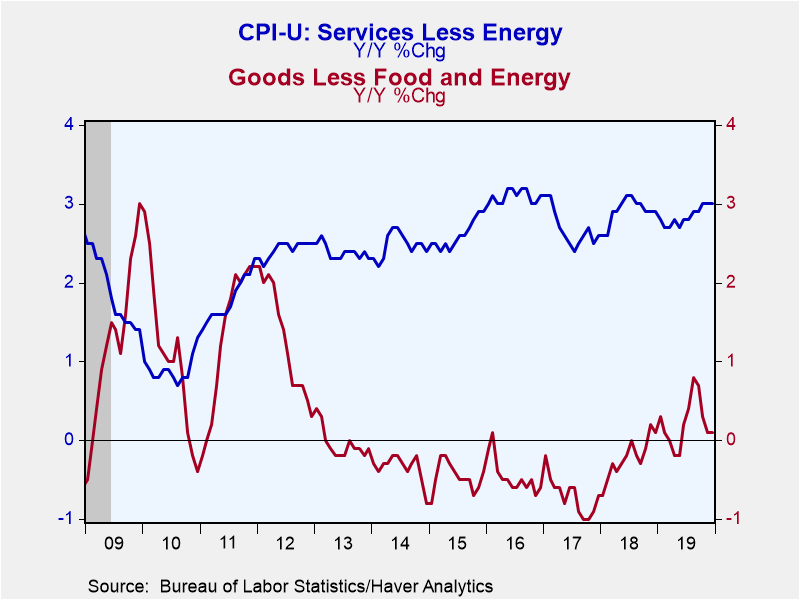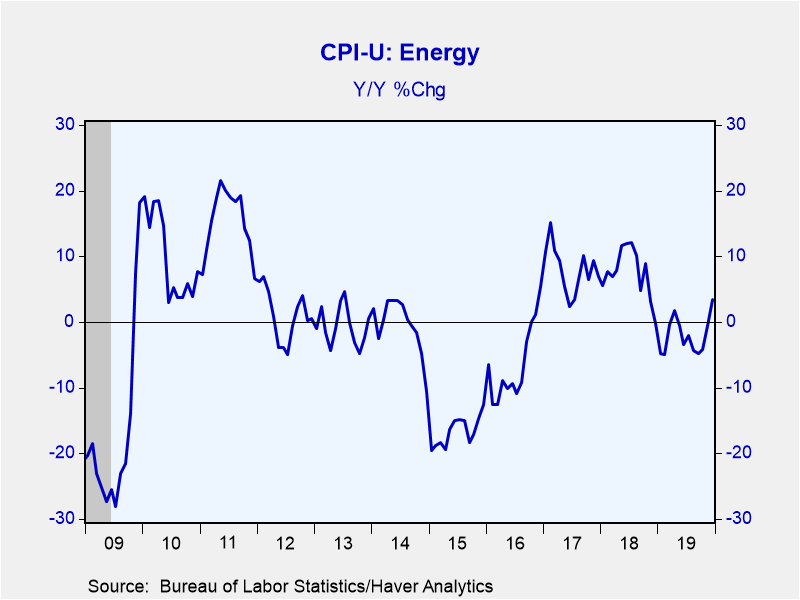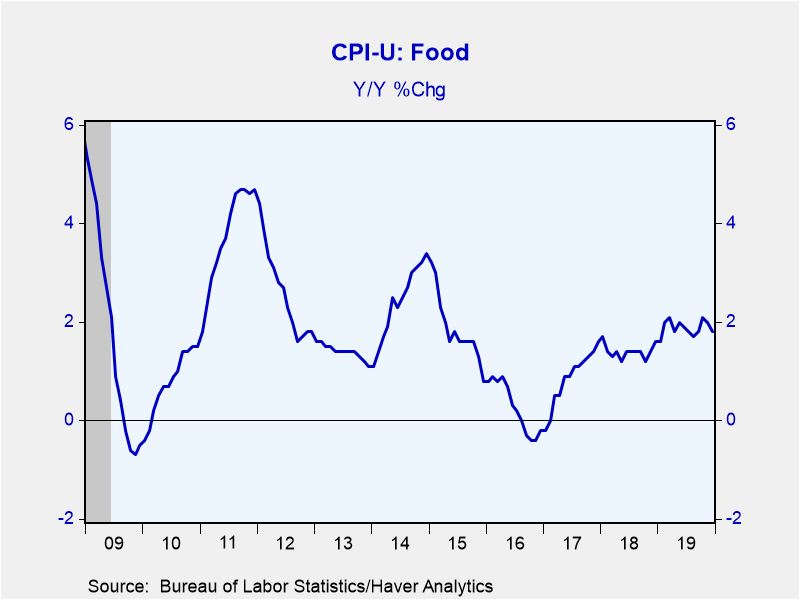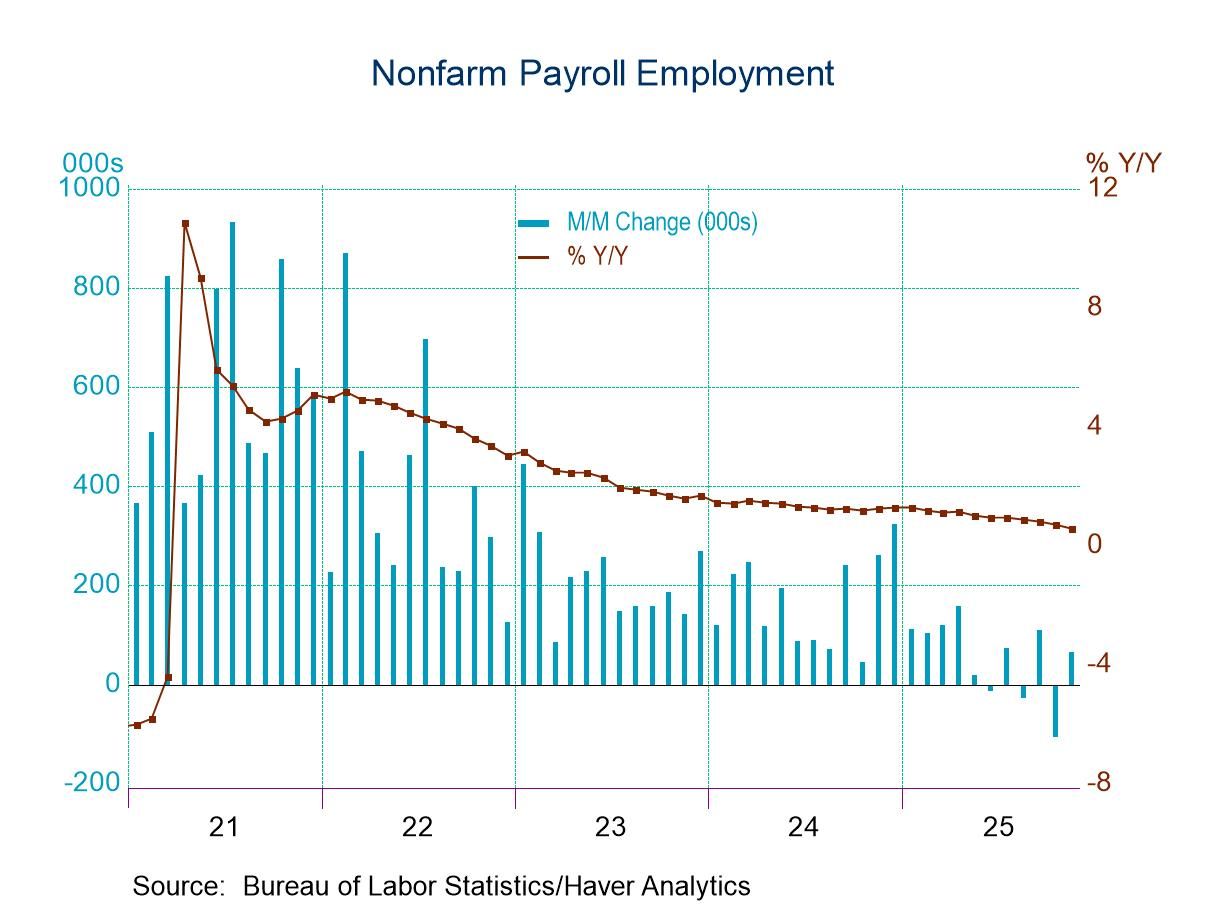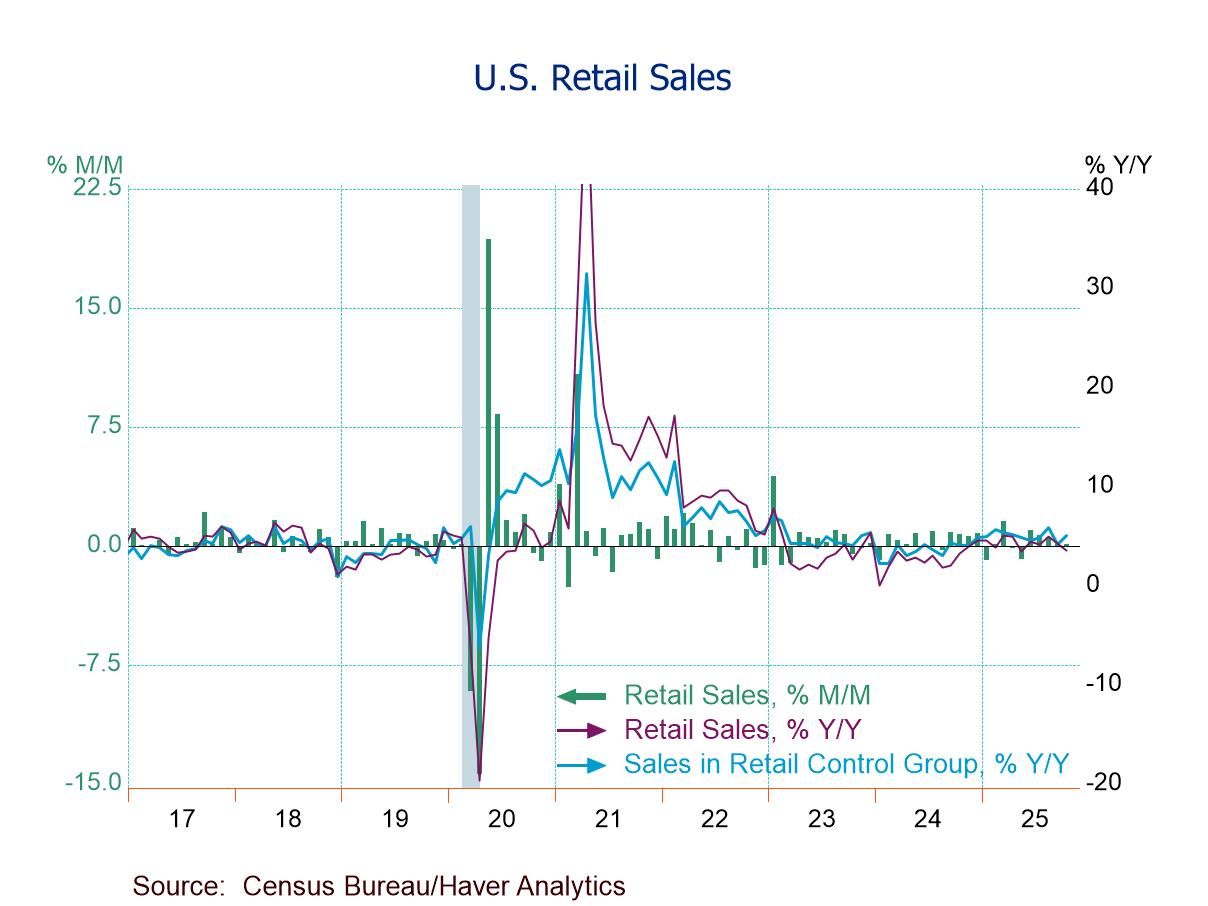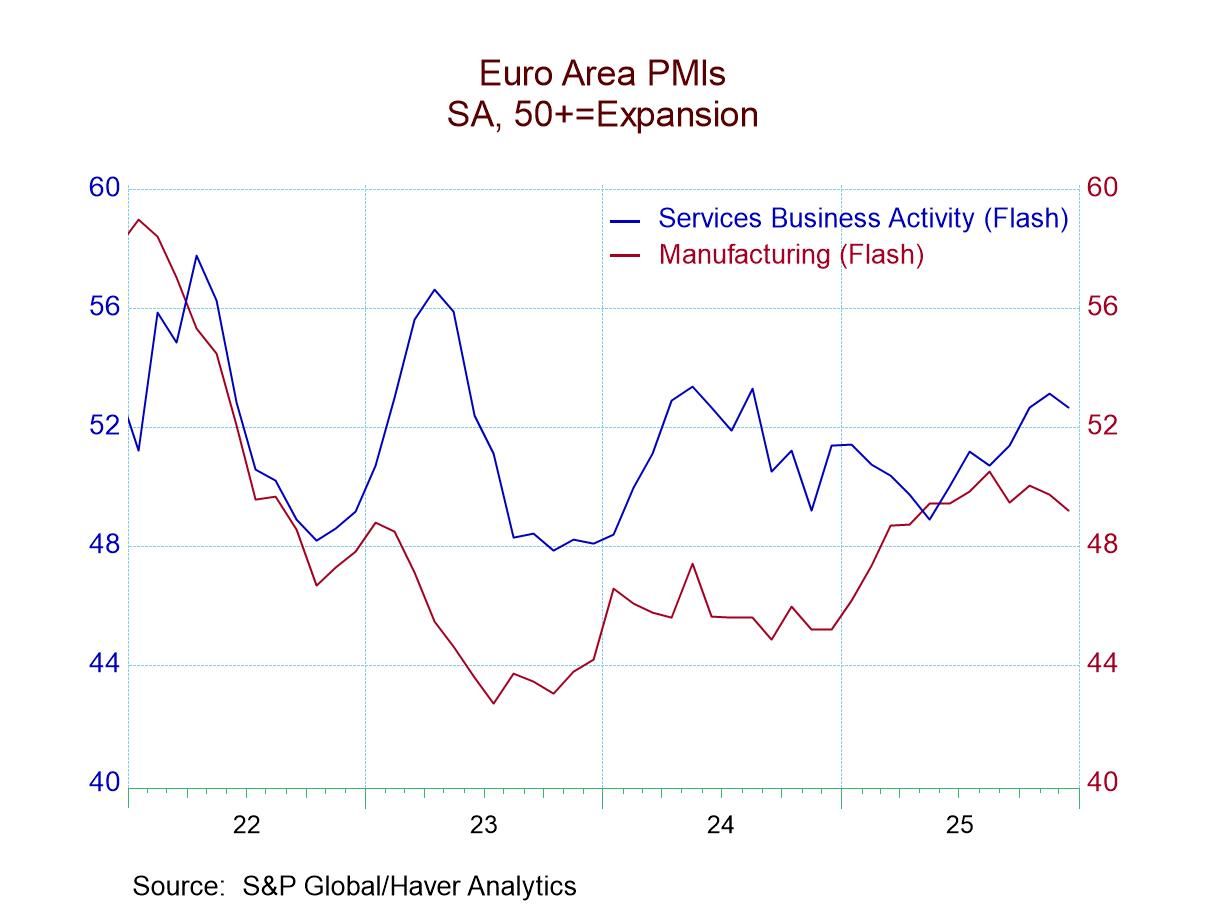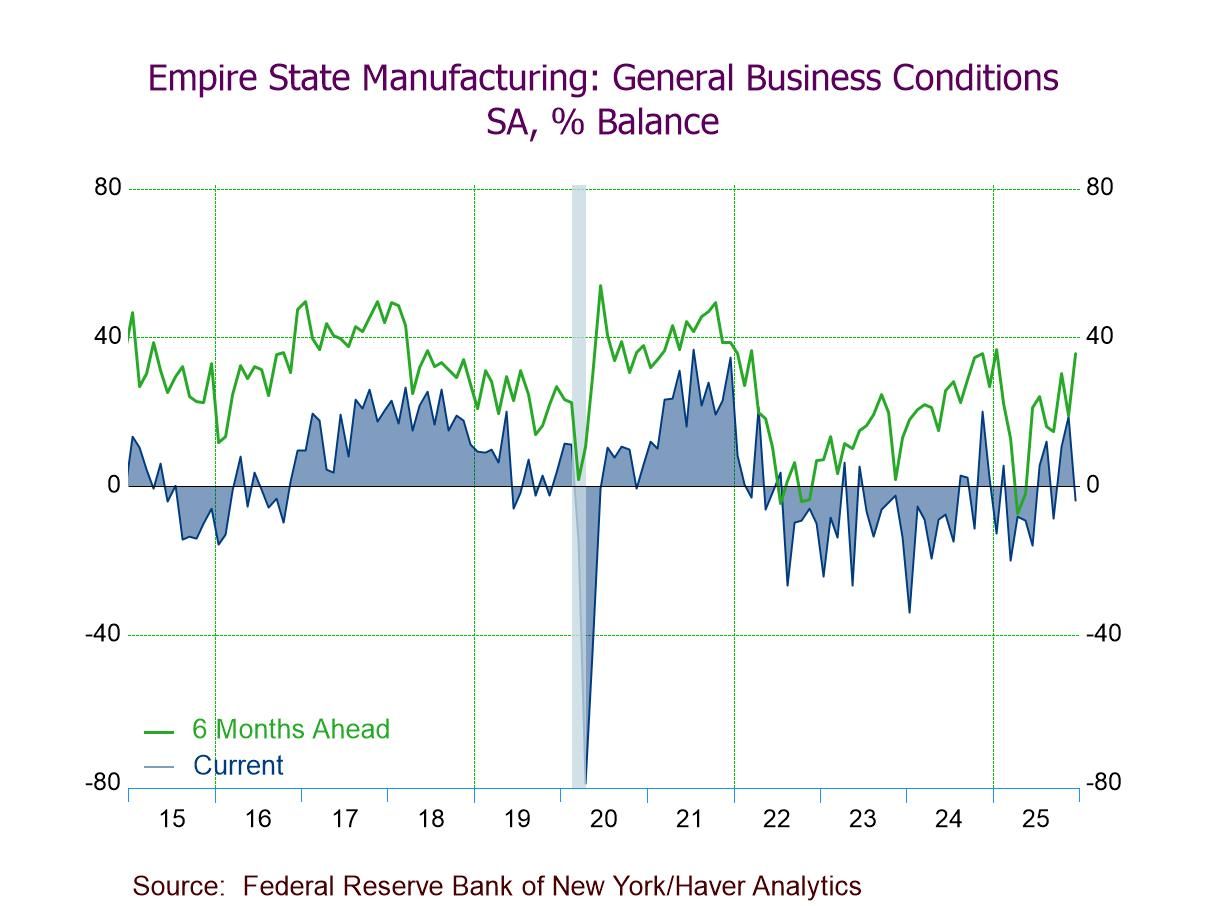 Global| Jan 14 2020
Global| Jan 14 2020U.S. CPI Increases Moderately; Core Prices Rise Negligibly
by:Tom Moeller
|in:Economy in Brief
Summary
The Consumer Price Index increased 0.2% (2.3% y/y) during December following a 0.3% November rise and a 0.4% October gain. A 0.3% increase had been expected in the Action Economics Forecast Survey. The CPI excluding food & energy [...]
The Consumer Price Index increased 0.2% (2.3% y/y) during December following a 0.3% November rise and a 0.4% October gain. A 0.3% increase had been expected in the Action Economics Forecast Survey. The CPI excluding food & energy edged 0.1% higher (2.3% y/y), the weakest increase in three months. A 0.2% rise had been expected.
Strength in energy prices continued to lead the gain in the CPI with a 1.4% rise (3.4% y/y) following November's 0.8% increase. Gasoline prices strengthened 2.8% (7.9% y/y), the third consecutive month of strong increase. Fuel oil prices rose 1.6% (4.6% y/y), also firm for the third straight month. Natural gas prices improved 0.3% (-3.5% y/y) after two months of larger increase. The cost of electricity declined 0.5% (-0.4% y/y).
Services prices rose 0.2%. The 3.0% y/y increase remained elevated from 2.7% early last year. Recreation services prices strengthened 0.5% (2.7% y/y) as video & audio services prices jumped 1.0% (3.1% y/y). Medical care service prices rose 0.4% (5.1% y/y) for a second month and the cost of education & communications gained 0.2% (2.0% y/y). Shelter prices improved 0.2% (3.2% y/y) as rents of primary residences rose 0.2% (3.7% y/y). The owners equivalent rent of primary residences also improved 0.2% (3.3% y/y), but hotel costs fell 1.8% (-0.2% y/y). The cost of public transportation declined 1.5% (+1.0% y/y).
Goods prices excluding food & energy held steady (0.1% y/y) for the second consecutive month. Education & communication goods prices were off 1.2% (-6.0% y/y), the third sharp decline in four months. Sporting goods prices weakened 0.8% (+0.1% y/y) and reversed November's rise. Recreation goods fell 0.6% (-0.9% y/y) as video & audio equipment prices declined 1.3% (-9.7% y/y) after a 1.1% fall. Home furnishings prices fell 0.3% (+0.3% y/y), the fourth decline in five months. The cost of appliances eased 0.2% (+0.2% y/y) following a 1.0% jump. Used car & truck prices fell 0.8% (-0.7% y/y) but new vehicle prices edged 0.1% higher both m/m and y/y. Showing strength were medical care goods prices which increased 1.5% (2.5% y/y) after nudging 0.1% higher. Apparel prices rose 0.4% (-1.2% y/y) after a 0.1% uptick.
Food prices rose 0.2% last month (1.8% y/y) after a 0.1% November uptick. Egg prices jumped 2.9% (-3.0% y/y). Meat prices strengthened 1.2% (3.6% y/y) after two months of firm increase, while dairy product prices held steady (2.4% y/y). Cereal & bakery product prices declined 0.4% (+0.3% y/y) following a 0.1% uptick while fruit & vegetable prices fell 0.3% (-1.3% y/y). Nonalcoholic beverage prices were off 0.4% (+1.0% y/y), down for the second month in the last three.
The Consumer Price Index data can be found in Haver's USECON database with additional detail in CPIDATA. The Action Economics survey figure is in the AS1REPNA database.
Who from Out of the Labor Force Is Most Likely to Find a Job? from the Federal Reserve Bank of San Francisco is available here.
| Consumer Price Index, All Urban Consumers (% chg) | Dec | Nov | Oct | Dec Y/Y | 2019 | 2018 | 2017 |
|---|---|---|---|---|---|---|---|
| Total | 0.2 | 0.3 | 0.4 | 2.3 | 1.8 | 2.4 | 2.1 |
| Total less Food & Energy | 0.1 | 0.2 | 0.2 | 2.3 | 2.2 | 2.1 | 1.8 |
| Goods less Food & Energy | -0.0 | 0.0 | -0.1 | 0.1 | 0.2 | -0.2 | -0.7 |
| Services less Energy | 0.2 | 0.3 | 0.2 | 3.0 | 2.8 | 2.9 | 2.7 |
| Food | 0.2 | 0.1 | 0.2 | 1.8 | 1.9 | 1.4 | 0.9 |
| Energy | 1.4 | 0.8 | 2.7 | 3.4 | -2.1 | 7.5 | 7.9 |
Tom Moeller
AuthorMore in Author Profile »Prior to joining Haver Analytics in 2000, Mr. Moeller worked as the Economist at Chancellor Capital Management from 1985 to 1999. There, he developed comprehensive economic forecasts and interpreted economic data for equity and fixed income portfolio managers. Also at Chancellor, Mr. Moeller worked as an equity analyst and was responsible for researching and rating companies in the economically sensitive automobile and housing industries for investment in Chancellor’s equity portfolio. Prior to joining Chancellor, Mr. Moeller was an Economist at Citibank from 1979 to 1984. He also analyzed pricing behavior in the metals industry for the Council on Wage and Price Stability in Washington, D.C. In 1999, Mr. Moeller received the award for most accurate forecast from the Forecasters' Club of New York. From 1990 to 1992 he was President of the New York Association for Business Economists. Mr. Moeller earned an M.B.A. in Finance from Fordham University, where he graduated in 1987. He holds a Bachelor of Arts in Economics from George Washington University.


